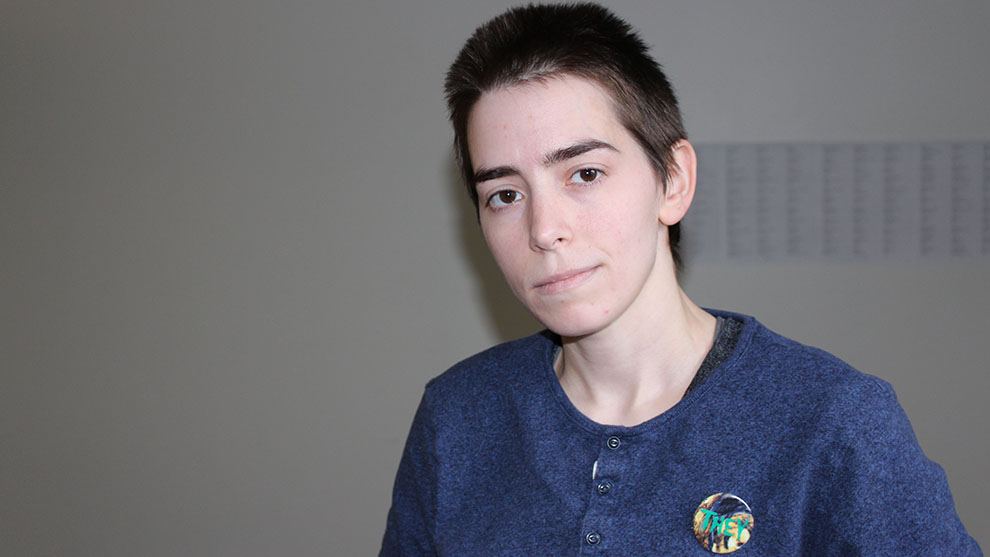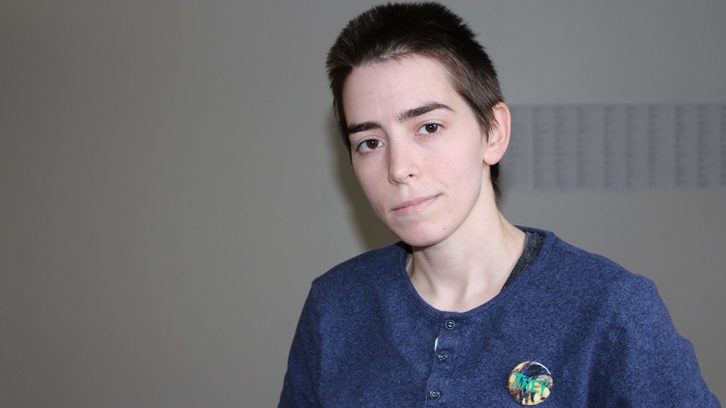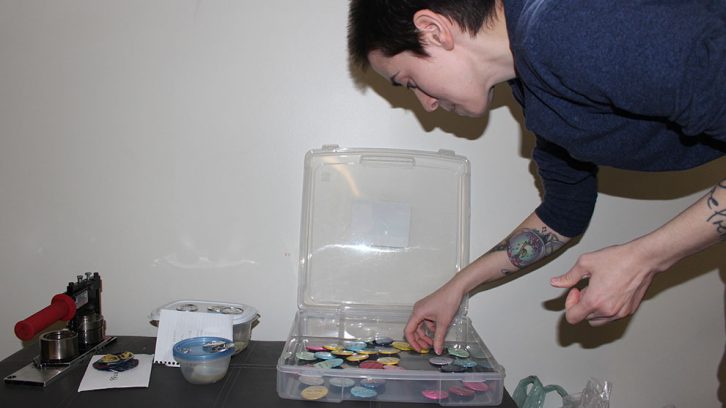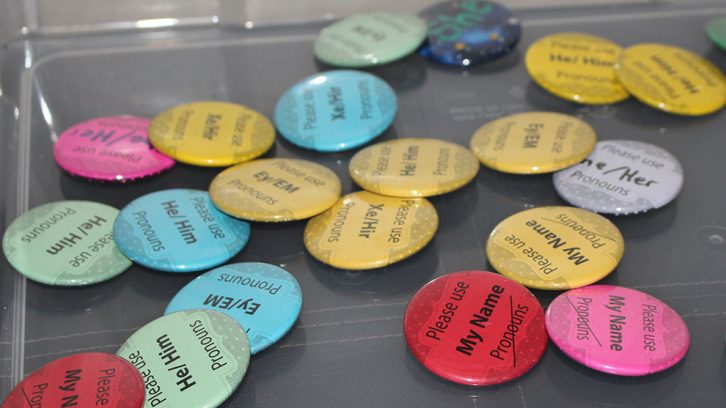LGBTQ2SIA+
Lost lives memorialized on Transgender Day of Remembrance
Victims of anti-trans violence are mourned each year on Nov. 20

caption
Clark MacIntosh organized a drop-in space to remember those lost as a result of transphobic violence.
caption
Clark MacIntosh organized a drop-in space to remember those lost as a result of transphobic violence.For Clark MacIntosh, Transgender Day of Remembrance is a time for solemn reflection, for sharing stories and lending support.
“If you ask pretty much anyone in the trans community, we’ve all known someone who has died this year,” MacIntosh said Monday.
MacIntosh, who uses the pronouns they/them, is resource and administration co-ordinator for the Nova Scotia Public Interest Research Group. They hosted this year’s remembrance event at Dalhousie University, but have participated in events, as a trans non-binary person, for about 10 years.
Transgender communities and supporters observe a day of remembrance annually on Nov. 20. MacIntosh welcomed students and community members to stop by the Wellness Room in the Student Union Building—a safe space to deal with intense emotions, or to add a candle to the vigil. There were no scheduled speakers or activities.
“It’s just come in, use the space as you need it, reflect,” MacIntosh said.

caption
MacIntosh provided supplies for making buttons with preferred pronouns.On the walls around the vigil, MacIntosh pinned up lists of names. Eleven pages named 325 trans people from around the world who were killed in the last year because of transphobia. One Canadian was included, but MacIntosh said the list isn’t fully representative.
“There’s many more folks that have lost their lives due to suicide and violence that wasn’t specifically reported as being targeted towards trans people,” said MacIntosh.
Trans people in Canada and the U.S. reported experiencing violence, harassment and discrimination more than other populations. The same study, by The Canadian Mental Health Foundation in 2016, found trans people were at greater risk for suicide, depression, anxiety and other mental health issues.
“(Transgender Day of Remembrance) can be a very emotional day; it can almost feel like losing a loved one or like going to a funeral,” said MacIntosh.

caption
What do you call a trans person? It’s simple: their name.The day is an opportunity for education and awareness, too. MacIntosh said non-trans people sometimes struggle to understand what it means to be transgender. They find the best way to approach it is in the simplest terms, an approach they’ve used with their two children.
“One of my kids is like, ‘Oh, you’re a boy-girl; ok cool I might be a boy-girl,’ and I’m like,’ cool,'” they said. “And my other one is just like, ‘You’re Clark; that’s what you are.’ They just don’t care.”
As of this year, the Canadian Human Rights Act includes gender identity and gender expression on the list of prohibited grounds of discrimination. Under the same legislation, Bill C-16, a change was made to the Criminal Code of Canada to make trans people an identifiable victim group when charging and sentencing hate crimes.
On #TDOR, we remember the victims of transphobia, as we keep working to build a world where people are free to be who they are. https://t.co/9FqzSGRKov
— Justin Trudeau (@JustinTrudeau) November 20, 2017
No one should face violence because of who they are. We observe the Transgender Day of Remembrance to honour the memory of lives lost in acts of transphobic violence. #tdor
— Nova Scotia Gov. (@nsgov) November 20, 2017
